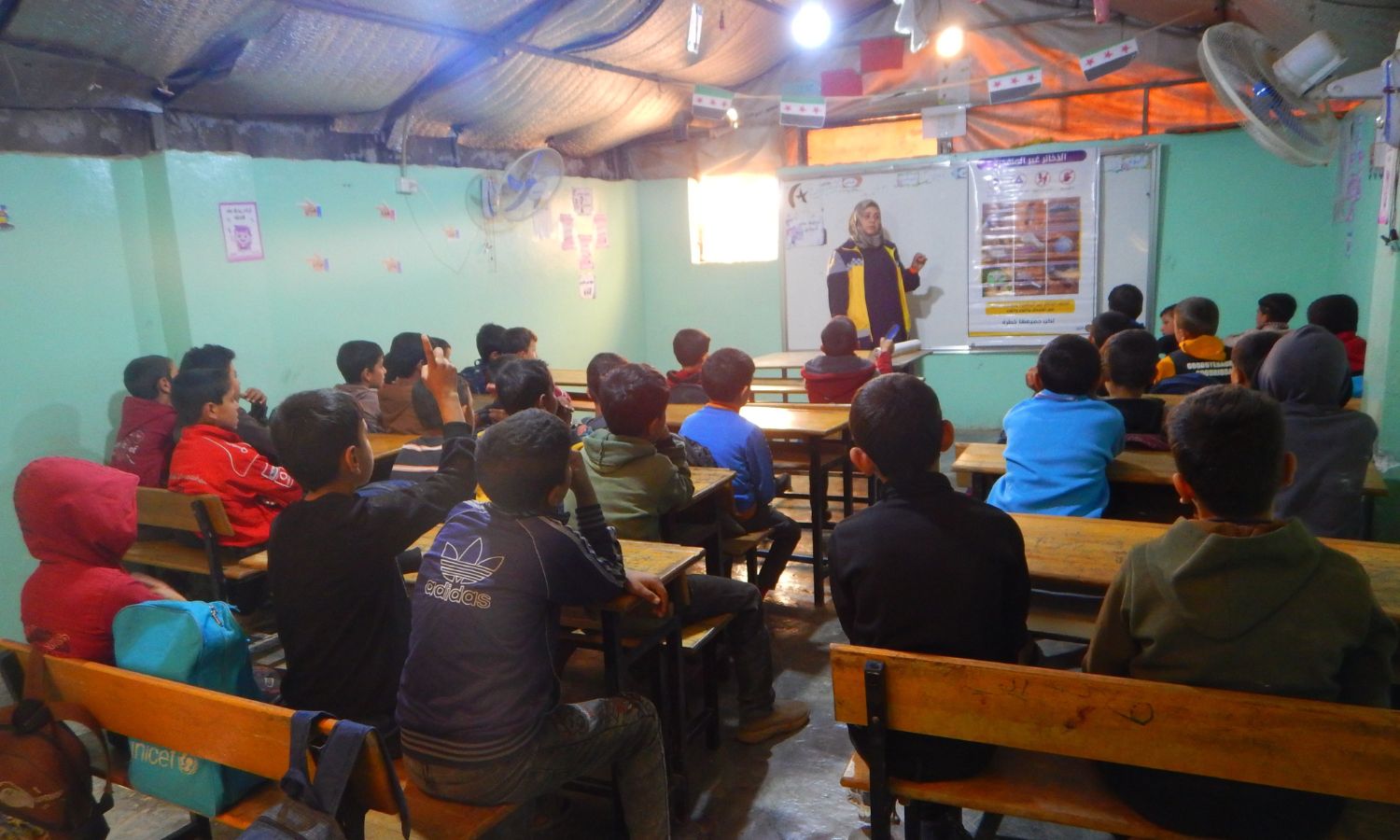Syrian children across various areas of control continue to suffer from repeated crises on multiple fronts, including education.
The hardships faced by school-aged children are even more severe in northwestern Syria, where nearly half a million children are deprived of education due to the deteriorating security situation, ongoing airstrikes, and worsening humanitarian and economic conditions.
Attacks on Schools
On the occasion of Universal Children’s Day, the Syria Response Coordinators team published a statement on November 20th highlighting the educational situation in northwestern Syria.
The statement pointed out the destruction of hundreds of schools, rendering them inoperable due to military attacks by the Syrian and Russian regimes.
According to the Syria Response Coordinators, 266 educational facilities in northwestern Syria have been put out of service over the past three years.
The pace of school attacks has increased this year compared to the previous two years, according to a joint report by the organizations Child Guardians and the Wite Helmets, published on November 18th.
The report revealed that 43 attacks on schools occurred between September 2023 and November 2024, compared to eight attacks between 2022 and 2023, and ten attacks during the same period in 2021-2022.
The attacks from September of last year through mid-November of this year resulted in the deaths of one child and one teacher, with nine children and another teacher injured.
The report also highlighted that approximately one-third of students feel unsafe due to the repeated targeting of schools.
Dropout Rates
The Syria Response Coordinators team also documented that over 386,000 children in northwestern Syria and 84,000 children in camps have dropped out of education.
Two primary reasons for this dropout were identified: the first is the economic situation in the region, which forces parents to send their children to work at an early age.
The team noted the absence of local regulations to prevent children from entering the labor market and the lack of a legal minimum age for work.
The dropout rate and shift to work affect two out of every five children, according to the team’s statement.
The Syria Response Coordinators expect this trend to worsen over the next three years due to the ongoing hardships faced by civilians.
The number of children working in the 14-17 age group exceeds 37% of all children in displacement camps.
The second reason for the dropout, according to the statement, is the continued displacement of families in the region, making it more difficult to secure basic needs.
Areas in the rural parts of Aleppo and Idlib continue to experience repeated waves of displacement due to ongoing airstrikes and shelling from Syrian regime-controlled areas.
The humanitarian team also mentioned other factors contributing to school dropout, including early marriages among girls and the distance of educational facilities from residential areas.
United Nations Efforts
The United Nations General Assembly has marked November 20th as Universal Children’s Day every year since 1990.
This celebration followed the adoption of the Declaration of the Rights of the Child by the UN in 1959 and the adoption of the Convention on the Rights of the Child by the UN General Assembly in 1989.
The celebration highlights global issues affecting children, advocating for and promoting their rights, especially in areas affected by war or humanitarian crises.
UN organizations are working to provide humanitarian aid and awareness campaigns to alleviate the impact of wars on children.
This article was translated and edited by The Syrian Observer. The Syrian Observer has not verified the content of this story. Responsibility for the information and views set out in this article lies entirely with the author.


